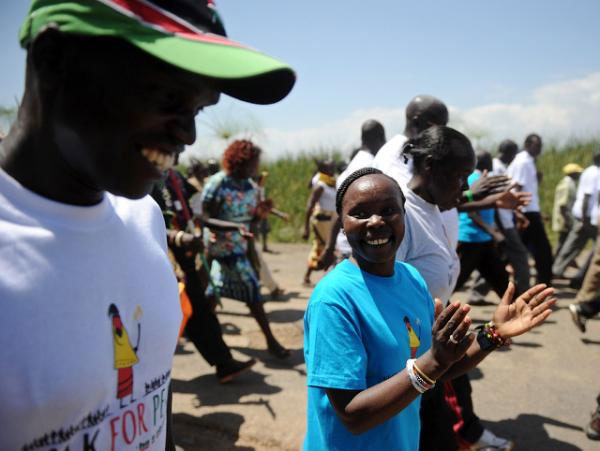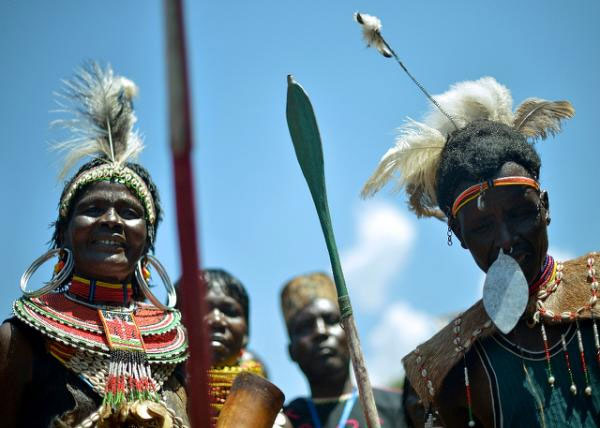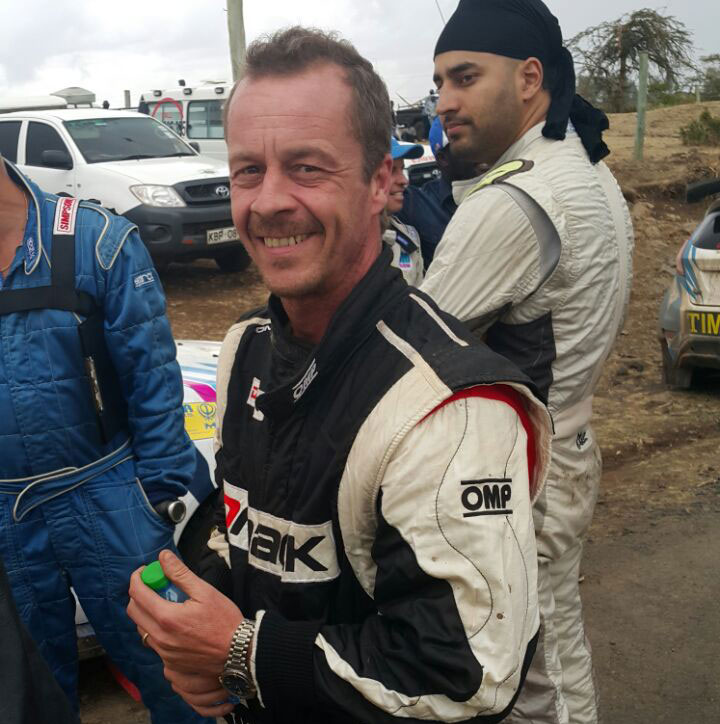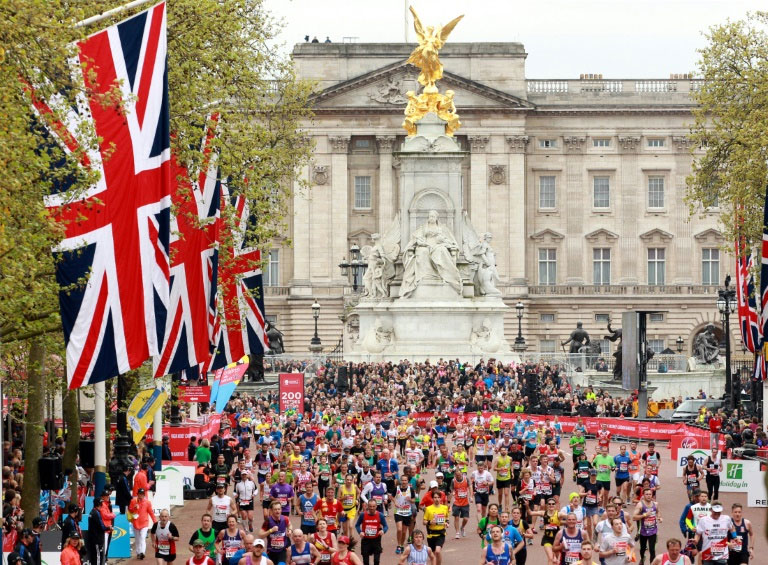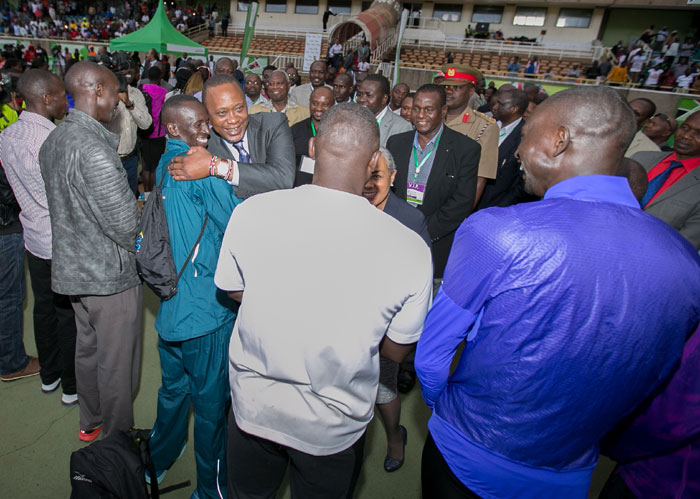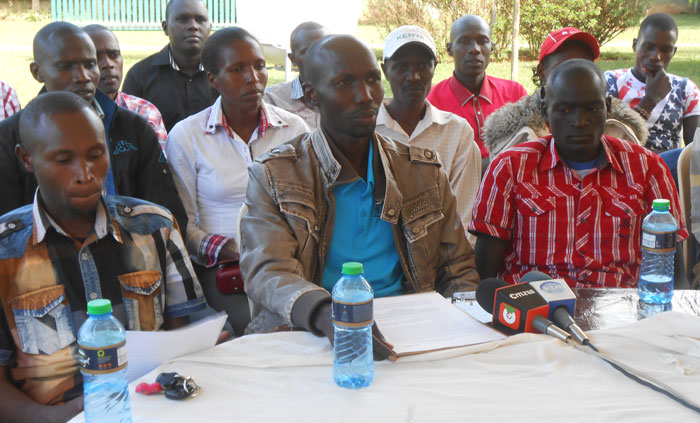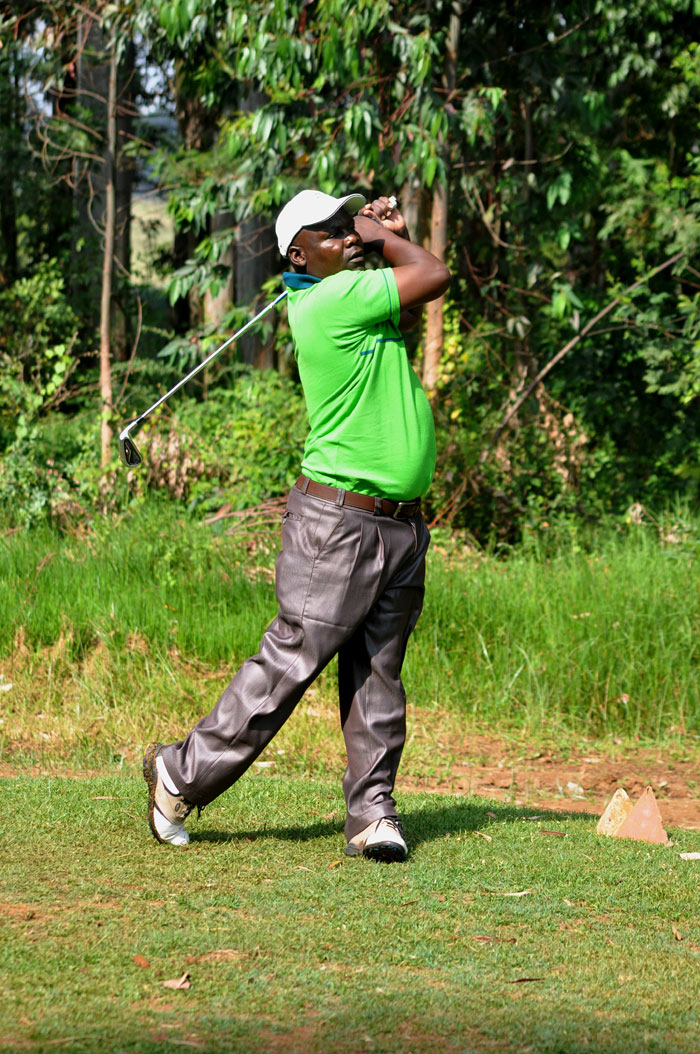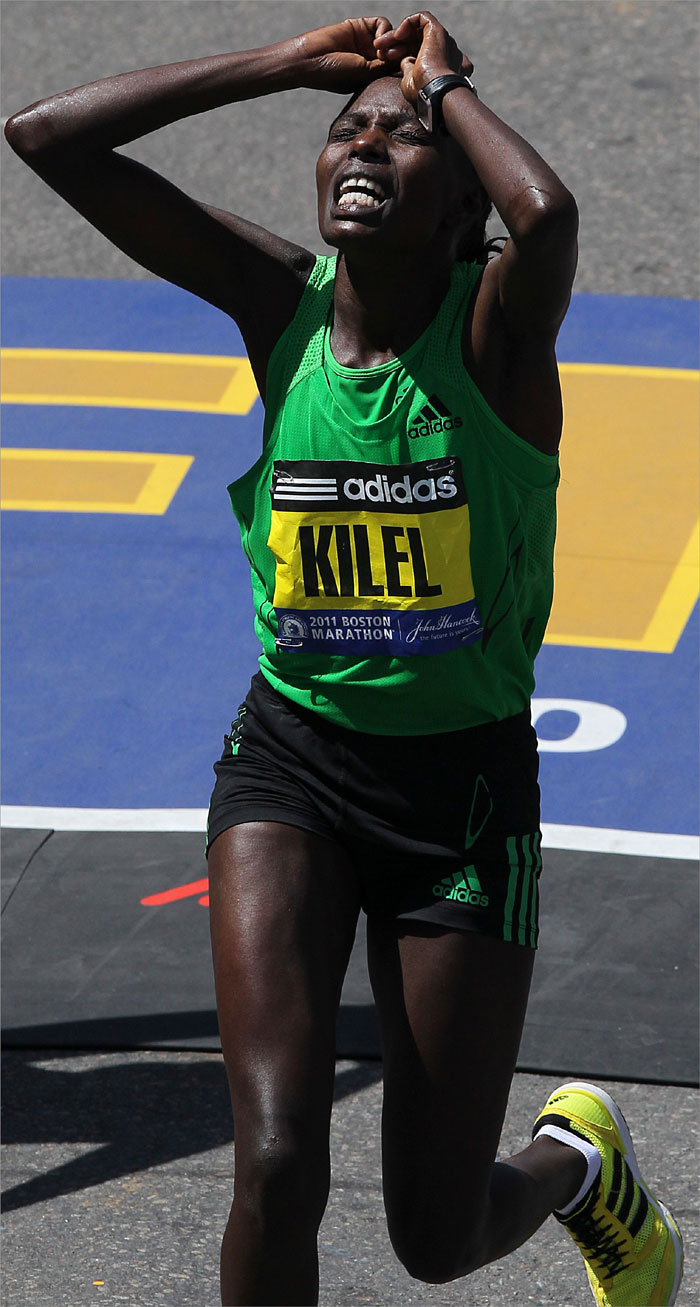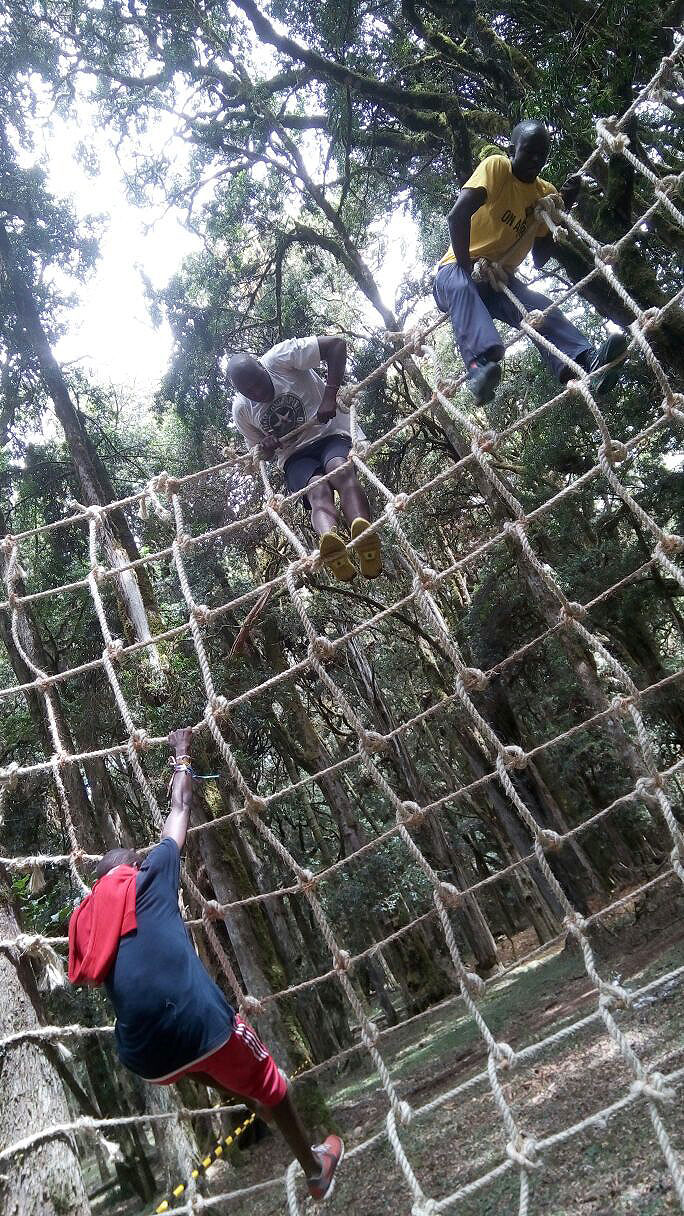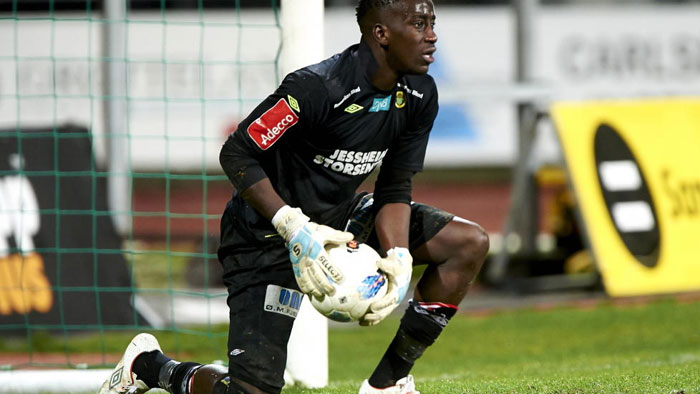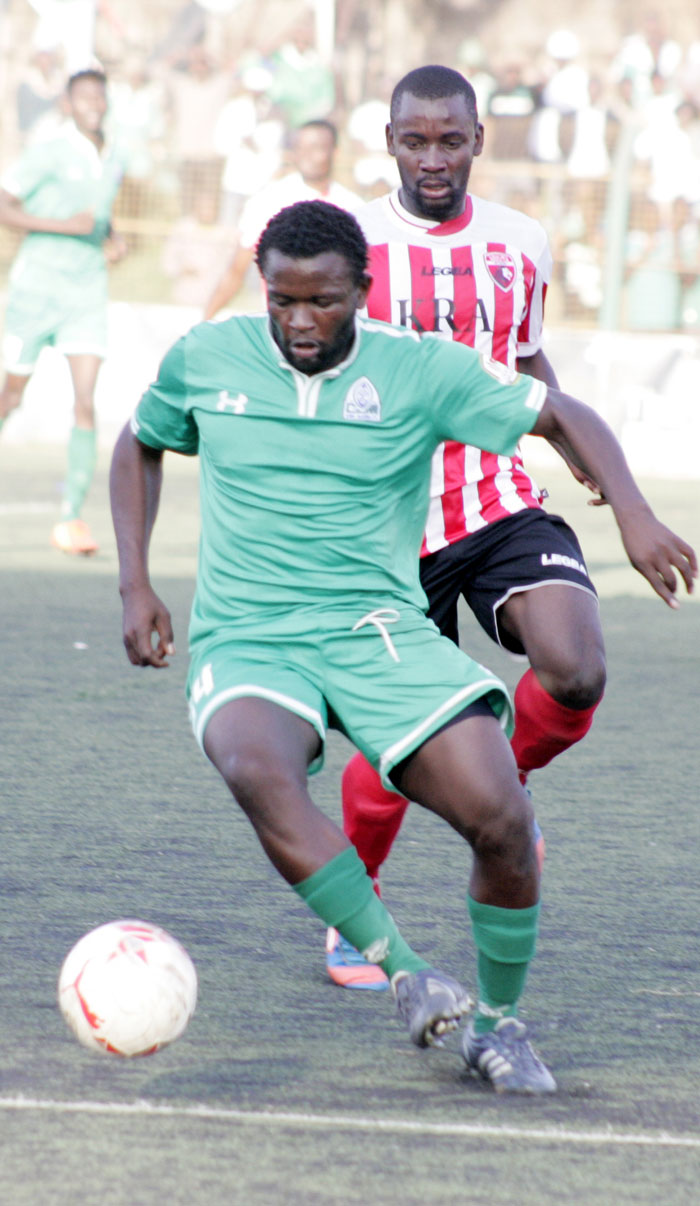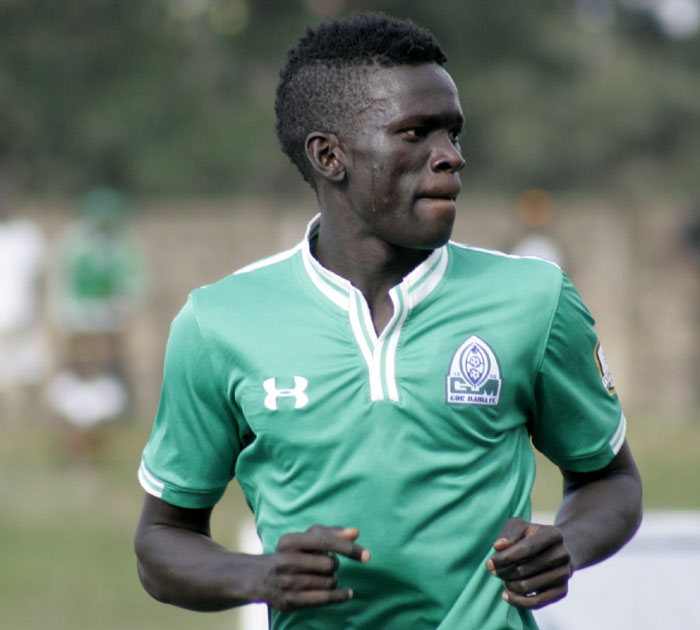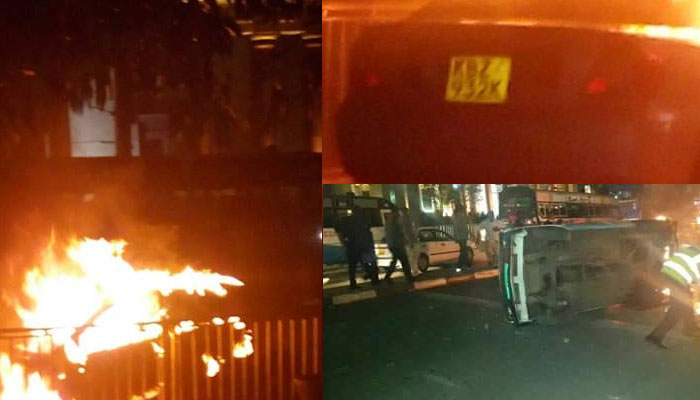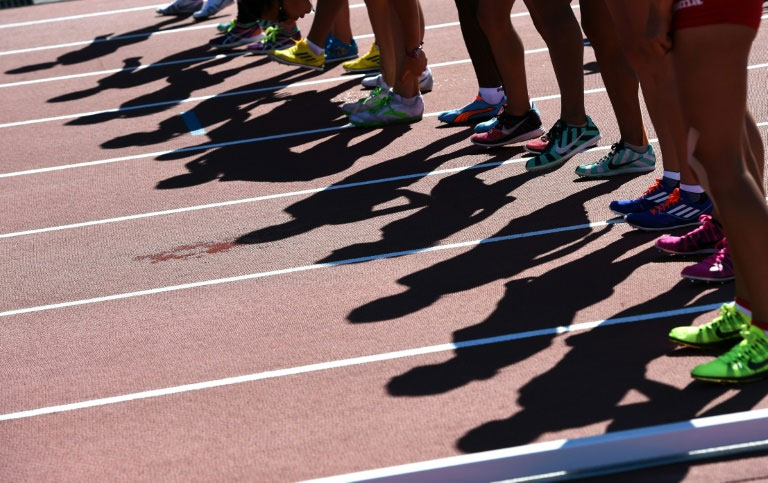![]()
Former Commonwealth and World Junior champion, Alex Kipchirchir and global peace ambassador and past women marathon record holder, Tegla Loroupe in the final leg of the Champions Walk for Peace in Baringo County on August 6, 2015. PHOTO/AFP
BARINGO, August 6- The relative peace and quiet of Lake Bogoria’s surroundings in Baringo County was shattered by a joyous cacophony of song, dance and merriment to crown a fitting ending to the grueling 552 mile (888.358km) Champions Walk for Peace that traversed the volatile North Rift region to preach co-existence across seven strife-torn counties.
The initiative driven by world famous runners managed to realise $90,000 (Sh9, 103,905) so far towards their $250,000 (Sh25,288,625) target in the quest to seek a lasting solution to inter-ethnic violence and cattle rustling that has cost more than 300 lives and lefts scores destitute and homeless.
The climax was also a show of political might with five Governors from the affected region converging at the Spa Resort in Baringo to join renowned athletes led by former world record holders, Wilson Kipsang and Tegla Loroupe as tired limbs gathered to toast their success.
It was the day when guns, arrows and other crude weapons that have caused so much anguish in the North Rift fell silent to mark a memorable day where long-suffering communities hoped will mid-wife the end of the scourge of violence that has spanned generations and resisted all other diplomatic or forceful efforts.
Reformed warriors who struck terror and wrought untold suffering to their victims led the festive merry-making as top runners, political leaders, invited guests-local and overseas, students and locals mingled freely to cover the last 1.5km in a carnival procession that belied the nightmare the region has endured.
“There was no kilometre that was left un-walked. We walked and reached the so called red line zones. In fact, that area is where the community embraced and extended a warm welcome to us.
“In addition, we had barazas (community gatherings) where we shared with them the theme of the walk and they embraced and supported it. As we speak, they are here with us to ensure this is successful,” John Ekiru Kelai, the 2010 Commonwealth champion who mooted the initiative with British NGO, Aegis Trust, that campaigns to eliminate genocide worldwide asserted as the climax unraveled on Thursday.
Kelai, the first Turkana runner to win a gold medal for Kenya, was inspired to establish the walk themed breaking the cycles of hatred and violence in nomadic communities after suffering personal tragedy at the hands of Pokot cattle raiders.
“I lost my relatives and this pained me so much. I didn’t want to take revenge because it is not a solution. I thought there must be a way out to handle this in a better way.
“This is not a one person initiative. It is a collective effort,” he underpinned as he saluted fellow athletes who sacrificed their time, resources as well as risking incursions into dangerous areas withing the charted route where the urge for violence and stock-theft overrides any idea of giving peace a chance.
-Champions speak-
Ethiopian legend and multiple distance world record holder, Haile Gebrsellasie was penned as the headline act in the final walk to the finish by organisers but his no show did not damped the enthusiasm or dilute the sense of high occasion despite a long delay to the start of proceedings at minutes past high noon.
Former record marathon record holders, Wilson Kipsang and global peace ambassador, Tegla Loroupe, led a cast of past and present world beaters in distance running including men 3000m record holder, Daniel Komen, in sprinkling the star dust to the conclusion.
“The walk for peace is important since as an athlete, it’s not only about running. If there is no peace in the communities we come from or those neighbouring, we are fully or partially affected.
“As a top athlete, I have to fully participate and work together with the community and leaders to make sure we embrace peace especially in these areas with cattle rustling and violence. I have really seen the importance of peace having had the opportunity to travel far and wide,” Olympics bronze medallist and two-time London Marathon winner, Kipsang, who is eying gold for Kenya at the Beijing Worlds underscored.
Loroupe, is no stranger to peace drives through her award-winning, world famous Tegla Loroupe Peace Race that covers pastoralist communities from her native Kapenguria, Samburu, Pokot and Karamanjoong of Uganda, was delighted another athlete had taken up the notion of using sport and local community acclaim to campaign for harmony.
“I feel I’m not the only one going the road alone. I met Kelai when I went to buy cows from Chesire Farm, after mine were stolen and taken to Uganda.
“My cows were stolen so that I could get Kelai who I was told was a good runner. I told Kelai, go and train and the following day I went to speak to his boss and Mr. Chesire who said, ‘yes Tegla, I will help Kelai’.
“I gave him his first shoe and told him by the time this shoe is finished, I want you to go out (to run overseas) and now I see he kept his promise,” Loroupe, the former women world marathon record holder and New York champion offered in a stirring tribute to the Delhi titleholder.
-Sore feet-
![Members of local communities take part in an 840-kilometre (522-mile) "Walk for Peace" against ethnic violence, in Baringo, Kenya on August 6, 2015. PHOTO/AFP]()
Members of local communities take part in an 840-kilometre (522-mile) “Walk for Peace” against ethnic violence, in Baringo, Kenya on August 6, 2015. PHOTO/AFP
Baking weather, hostile receptions and harsh terrain along some parts of the designated route combined with the daunting distance in the event that started from Lodwar to Lake Bogoria from July 15 through to Thursday carrying an Olympic-style torch that passed from walker to walker to provide the energy sapping, back-breaking and dispiriting moments of the campaign.
“It was difficult for us, we encountered a lot of challenges. Walking over 500 miles was not easy. Many guys dropped on the way because some fell sick, they couldn’t walk.
“The weather was so harsh on us, it was so hot and towards Eldoret, it was so rainy. Loruk, somewhere near Tangorbei was the most challenging. It’s hot and that’s where people kill each other, so we managed to pass there but it was so difficult.
“We saw the warriors, called Ngoro and they came out and we walked together as we encouraged them to stop cattle rustling. That walk was so important for me because I was able to bring something back to the community by encouraging youth to go back to school,” Alex Kipchirchir, the 2002 World Junior and 2006 Commonwealth Games champion in 800m narrated after taking part in the entire exercise.
Fittingly, as he told of his experiences, reformed warriors could be heard belting out celebratory tunes in the background bearing the scars of their victims etched on their faces or arms as a macabre reminder of the lives they have taken- each body mark representing a killing.
-Millions raised-
The millions raised are meant to kick-start a peace building programme with the Aegis Trust – modelled on Aegis’ successful peace building work in Rwanda – which will engage with at least 10,000 young people at risk of being drawn into the violence in Kenya’s North Rift Valley.
“If we look back at the 2007/2008 election violence in Kenya, sports is what healed the country since after that we had the Beijing Olympics where we won six gold medals.That brought peace, it brought us together. As sportsmen, we have a big role to play in bringing people together because we are the pacesetters.
“As we were doing this march, I saw we had youth and political leaders, the Governors together. This is just the first step, we want ti see the second of elders declaring there is going to be no more war, we need peace. When the Government wants to get peace, it comes from the Governor to the elders,” Douglas Wakiihuri, the first Kenyan to win the world marathon title underscored.
“When the raids happen the elders act (by) themselves without asking anybody, the challenge is to ask all elders from the seven counties and explain to the youth why people should not fight as culture keepers. When wealth is taken from raids, they are the beneficiaries,” the pioneer Kenyan marathon Commonwealth champion from 1991 added as he pressed for the initiative to be expanded to cover all counties.
Baringo Governor, Benjamin Cheboi, who hosted the finale led four other county chiefs in amplifying the message of peace as the runners, who made it happen, quietly receded, as they often do, to the background as politicians took command of the centre stage.
But the significance of the occasion was not lost on the locals who turned out in their droves to witness a gathering such like they have never seen.
A light body aircraft carrying some of the county bosses was the first to spark rousing interest as it came down for a fast landing to signal the start of proceedings.
Long after the walk, Turkana Governor, Josphat Nanok landed in a chopper to make his grand arrival in an act that stole the show when a sizable number of those present surged to its direction as its rotors whirred to stop.
Assembled local and international journalists mostly biased in sports reportage also had their antennas up thinking the great Gebrsellasie had finally turned up after repeated promises he was on his way from Nairobi.
“They have all closed shop to go to the run (walk),” one of the only two shopkeepers who was open for trade in the tiny, dust-beaten and rickety shopping center close to the Lake Bogoria National Park told this writer when together with his colleagues, ventured out to seek drinking water that was in scant supply as the locals waited for the final walk to start in sweltering heat.

